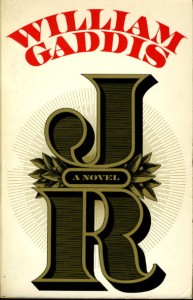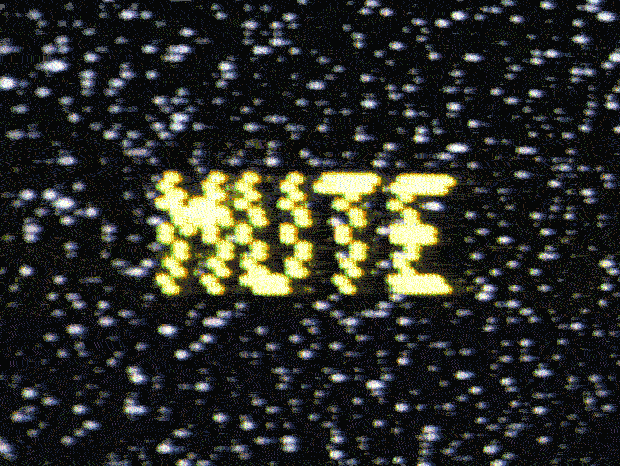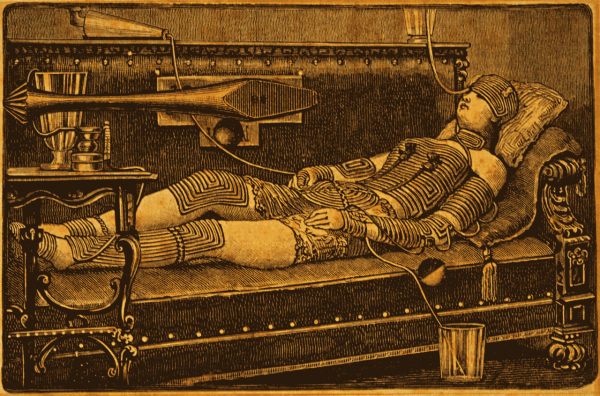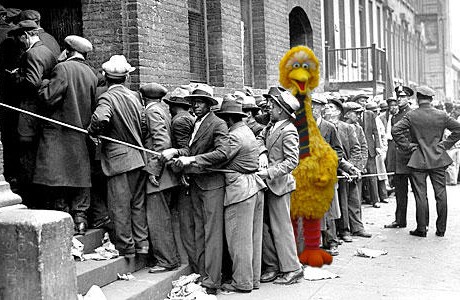Books or whatever
Orwell said, “It hardly needs pointing out that at this moment the prestige of the novel is extremely low, so low that the words ‘I never read novels’, which even a dozen years ago were generally uttered with a hint of apology, are now always uttered in a tone of conscious pride.” This, he says, is because novels are over hyped, due to the commercial aspects of book reviews:
On the face of it, the book-ramp is a quite simple and cynical swindle. Z writes a book which is published by Y and reviewed by X in the Weekly W. If the review is a bad one Y will remove his advertisement, so X has to hand out ‘unforgettable masterpiece’ or get the sack. Essentially that is the position, and novel reviewing has sunk to its present depth largely because every reviewer has some publisher of publishers twisting his tail by proxy.
This was 1936, before the WordPress “Publish” button, otherwise I think he would add to the equation a few other ulterior motives (which we’ve hauled out so much: writing reviews to climb the publishing ladder, writing reviews to boost our pals, to promote our own books or our reading series). Orwell does allow that there is no big conspiracy here, and the bigger problem is that people think all novels even deserve reviewing. In the essay, which is worth another look (turn on Clearly), Orwell talks a lot about blurbs, too, as part of the reason no one takes novels seriously anymore.
He overstates his case, of course, and 77 years later the novel is alive and well—at least among we literates. Set up an account at Zoosk, though, and try to find a match with an interest in books, and things are a bit different. How right was Orwell? Could his concern about reviews be extended to the surfeit of published books? More interesting question: is the recent “swarming” of that new Michael Jackson book, which haters killed with negative Amazon reviews, somehow a continuance of Orwellian fear?
In the comments, please discuss Clearly and Zoosk.
Gaddis and J R: Life With, By and Before
J R
William Gaddis
Alfred A. Knopf, 1975
726 pages / $15.16 buy from Dalkey Archive or Amazon
By July I’d completed my yearlong ramble through DeLillo’s oeuvre. It was not one of the hottest summers I remember. I had a room in Crown Heights with a window that faced out to an alley, across which lived a Barbadian family, whom I was awoken by most mornings before biking the six miles, across Brooklyn, over the Manhattan Bridge, through Chinatown, to the parking lot behind the business school next to the library, where I rode the elevator to the tenth floor and worked for eight hours Monday to Friday. I had little idea or direction of what to do next.
I read Wittgenstein’s Mistress in about two sittings, during which I came to vaguely understand the significance of the name William Gaddis. All I knew when I dropped down to the eighth floor one afternoon to pick up the massive copy of The Recognitions was that it included a character who wore a clock as a necklace. The image appeared throughout Markson’s insane novel and recalled Flavor Flav, the refurbished and culturally derided figure of the preceding decade, which seemed enough for me.
It took me three attempts to get through the first ten pages. I’d decided with a friend that we would tackle it simultaneously, but he gave up a quarter way through the first chapter. He explained that he didn’t have any interest in dedicating his respite to a man baptized by Jonathan Franzen as “Mr. Difficult.” As a matter of contention or cultural superiority, or, more likely, personal superiority, I committed to reading the novel to completion and full understanding.
I did so, along the way reveling in what I referred to as the most conscious and hilarious diatribe on art ever penned. I was indoctrinated; by what I read, I found myself deeply shaken and moved.
A month passed. I signed a lease on an apartment with my girlfriend in a neighborhood that used to be a part of Flatbush but is now called Prospect-Lefferts Gardens and enrolled in my penultimate semester of college. I reread Hamlet and Heart of Darkness and The Waste Land. I read for the first time A Portrait of the Artist as a Young Man and Ulysses and “Ulysses” and “Prufrock” and Castle Rackrent. I had few conversations about Gaddis. I went out constantly for a few weeks and stopped. There was the hurricane and I walked across the Manhattan Bridge through a city without electricity to Madison Square Garden. I read Ben Gocker’s absurdly funny Content publication The Pisces on a bus from Philadelphia on three hours of sleep. I felt tired of writing. The insanity of the world seemed more sane. I was bored, watched hours of television. I still do. I’m still bored. And I thought, I think about The Recognitions regularly as this masterpiece of social and artistic criticism, the most effort ever poured into something’s message, which stands to say: It’s not worth it.
January 16th, 2013 / 1:11 pm
My Experience Writing for Muumuu House

Wrote about Tao Lin for Hobart.
Exchanged emails with Tao about what I wrote.
Tao cut and pasted part I’d written about Zac Zellers and Marie Calloway and wrote beneath it “this seems funny to me.”
Replied with a paragraph in which I described Zac Zellers as the “Where’s Waldo” of Ann Arbor.
19 mins later got email from Tao saying “you should write something about this and send it to me.”
The Obsolescence of Publish or Perish: How To Get (& Keep) Attention
A)
I found this article on Dalkey Archive & the Best Translated Book Award over at Writers No One Reads really interesting. While it’s an interesting case study in its own capacity, it really had me thinking about the issue of how so many books are published, yet, from what it seems, not that many books are being read.
The fact that even a “major” publisher of “smaller” works, such as Dalkey, doesn’t seem to have any idea how to advertise, has me really concerned– almost 13 years into the 21st century, where advertising has almost literally been the singular thing every human being has been and is repeatedly exposed to, why are we–as writers, publishers–so bad at it?
At one point in life it seemed a huge thing to get work published; it was certainly more difficult in the past, yet every day, with more and more journals & presses popping up almost daily, as well as the new affordable modes of large-scale self-publishing, being published seems to be incredibly easy–if you can write a book, you can probably publish it. But, if you can publish a book, that doesn’t mean that anybody is going to read it.
A little while ago, Mike posted that “social media isn’t a very good way to promote your book”. I don’t necessarily agree with him in any capacity, but it’s interesting to consider, because, really, what else do we have? I’m convinced that even when books are reviewed, very few people read the reviews. I know that often I won’t read a review of a book I haven’t read unless one of three things occurs: 1) I’ve heard of the book already and am interested in it, 2) The title or the cover is appealing & 3) I’ve heard the author mentioned somewhere else. So, I guess book reviews at least, to support an authors egotism, support the idea that their book has actually been read, but unless it’s a review that pops up in a very large venue, I can’t imagine they’re helping to sell books much. It’d be pretty awesome if someone were to prove me wrong.
But I’m just wondering, what the hell is the best way to sustainably advertise books? Reading tours? Book trailers? Posting your shit on Tumblr? Linking your books to your friends and family? I don’t know.
B)
All of this seems related to another thing that I’ve been thinking about: How many small press books have staying power? We post links to shit that’s new, we review books right when they come out, but three years, one year, hell even six months later, do we think about these books at all? What can we do, in small press world (and I think there’s some sort of development happening in the world, thanks to the decentralizing nature of the internet [cough-the literary establishment no longer has any reason to remain in NYC-cough], that small press can eclipse big press, at least it should be able to, in terms of generating interest; with the internet we can and should be able to push our words past the realm of small press book readers; we should be able to appeal to any number of individuals of–fuck it, i’ll say it–markets, and demonstrate that we have something people are looking for. Whether or not any of this is true, well, I guess we’ll find out in years to come.
They’re going to make the National Book Awards dinner a flashy thing, like the Oscars/Man Booker: The goal is to add more sex appeal to an industry that’s not exactly known for it — but not, the organizers insist, just for its own sake. “It’s not about being glitzy,” said David Steinberger, the chief executive of Perseus Books and chairman of the foundation. “It’s about increasing the impact great books have on the culture.”
10 Books
a.k.a. “Playing catch up with the stacks [4].”
In this series, I share with you a stack of my recently acquired and most anticipated reading materials.
I did a version of this in August, and March, and also back in May of 2011.
Once again I have a heaping pile of awesome-looking unread materials just waiting to be experienced…
Reviews Section Update: 25 Points
HTMLGiant is now accepting submissions for a new category of book review. “25 Points” will feature reviews consisting of numbered series: 25 facts and/or opinions about a single work. Tangential list items, variations of length, and other deviations are encouraged. Reviews and queries can be sent to brooks [at] htmlgiant [dot] com.
Bkclb is a cool new way to buy eBooks
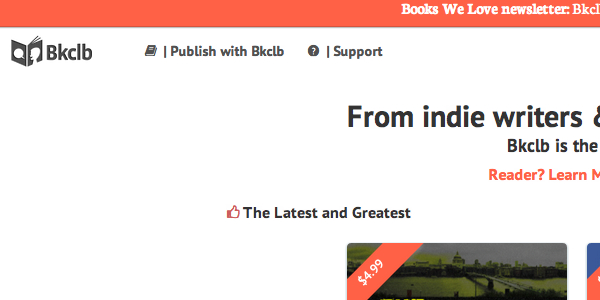
I’m a big fan of anything that has to do with publishing but ISN’T publishing (like Submittable and Vouched), so naturally I was intrigued by Bkclb, a new and Australian eBook seller that’s geared directly toward indie lit. I started using them for PGP books and I really like everything about it. Shit don’t cost too much. They got the new Lifted Brow and some Dzanc Books and this Sententia book that’s all the rage.
I asked Connor Tomas O’Brien, who runs the show over there, a bunch of questions a while ago (see below) and now Bkclb is coming out of Beta, so to celebrate checkitout: go here, enter “HTMLGiantSux” and you can get the eBook of Timothy Willis Sanders’s excellent Orange Juice for free. Try it out, see what you think, say what you think in the comment box below, provided by Disqus, here’s the what why when who how: READ MORE >
Dark Sky founding editor announces their closing — very nicely done, too.

